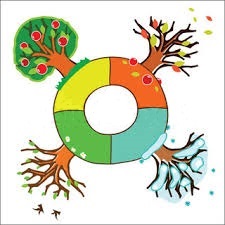Seasons of Life
By Anthony Casperson
3-2-19
The concept of a season is easily grasped. We have seasons for many things. There’s the calendar seasons, which would involve planting seasons as well. TV series have seasons of airing, some even being split into a fall and spring season within the year. Sports have seasons, during which a set number of games are played.
There are many other seasons. Pretty much everything has a season. Even the bible reminds us of this cycle of seasons. Ecclesiastes 3:1 says that everything has a season and there’s a time for everything. The next few verses list out some specifics.
But one thing these seasons tend to have in common is that they’re around for a set amount of time. There are parameters around which they’re set. Even when it comes to seasons such as fall, winter, spring, and summer, the exact date might change from year to year, but the general timeframe remains consistent. You know generally when a season will come to an end and the next will begin.
But when it comes to seasons in a person’s life, the timeframe is much less consistent. A person can go from a relatively hassle-free life, to a few months of difficulty, to a few more years of good, to dealing with a terminal issue. It’s never really known when a season of a person’s life will come to an end and another will begin.
Oh, we’ll try to predict or manipulate the flow of seasons in our life. Some might rigorously follow a 10-year plan, unbendingly moving forward in their self-prescribed direction. But that will often lead to disappointment and discovery of an unplanned season.
I’ve seen this attempt to predict and mandate the seasons of our lives performed by we followers of Jesus quite often. My “favorite” is the use of the phrase “dark night of the soul.” As if a person just needs one good night of crying themselves to sleep before they should be good again. “Get over yourself. You’re done. You’ve had a whole night to deal with this.” The callus phrase interjects.
When it comes to seasons of good, seasons of growth, seasons of prosperity, we want the season to last as long as it can. But when it comes to these difficult seasons, “I can schedule out a night…I guess.” We forget that we can’t plan out how long a dark season will last any more than we can prolong a season of plenty just because we like it so much.
While not necessarily the most Jesus-friendly of fictional stories, I think that the structure of seasons in the Game of Thrones series can help us out. (And to not confuse TV seasons with seasons such as summer and winter, I’ll refer to the books here.)
At the beginning of the first book, we learn that the world of Westeros has experienced nearly a decade of summer. The seasons are not a yearly cycle, rather a cycle of unpredictable lengths. And the bounty of summer has lasted for nearly 10 years. But the Stark family motto: “Winter is coming” remains true nonetheless.
Winter arrived near the end of 2011’s A Dance with Dragons. And it will continue in the upcoming Winds of Winter (which as of yet doesn’t have a release date). No one knows how long this winter will take.
The same is true of our seasons of life. If we take the perspective of the seasons of our lives as undetermined lengths of time, then we might just stop wondering when the dark seasons will end. We can then focus less on the change of season and more on what this season can teach us as we grow to be more like Jesus.
The point that there’s a season for everything and everything has its season is that there’s a reason for its existence. There’s a reason why some reading this blog are in a dark season. I don’t know what that reason is, but as we all follow the leading of God in our lives, we can discover the ways in which he wants us to grow.
God’s purpose in our lives is always in season.




